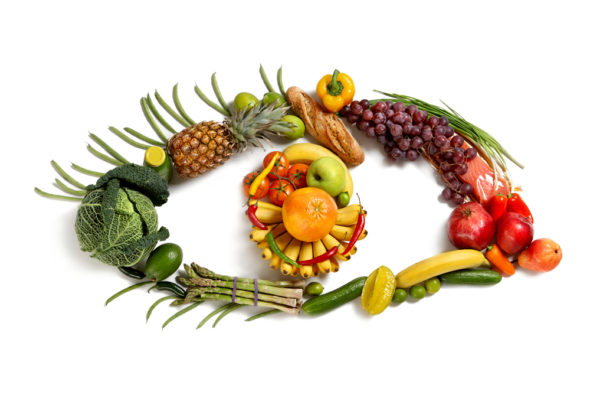
Nutrition and Your Eyes
Posted August 30, 2018We’ve all probably heard the phrase “eat your veggies!” at some point in our lives, especially during our childhood years. At Invision, we understand that when faced with a bowl of spinach or a bowl of ice cream, most people would choose the latter. However, proper diet and nutrition are important because we need more nutrients than our bodies are able to produce on their own.
The nutrients we get from vegetables and other foods play a big role in protecting our eyes and maintaining our optical health. Here are a few specific eye-supporting vitamins and how you can incorporate them into your diet.
Lutein & Zeaxanthin
According to the American Optometric Association, AMD and cataracts are the leading causes of vision impairment and blindness in the United States. Lutein and zeaxanthin help reduce the risk of these chronic eye diseases.
Popeye, the sailor man, said it best when he said “I’m strong to the finich, ‘cause I eats me spinach.” Spinach not only keeps you strong, it also protects your eyes. It contains lutein and zeaxanthin, two important carotenoids. While cooked spinach is one of the best natural sources of lutein and zeaxanthin, these nutrients are found in a variety of other leafy greens, too.
Vitamin A
Vitamin A helps reduce the risk of eye infections by protecting the surface of the eye, also known as the cornea, from bacteria and viruses. Sweet potatoes and carrots are both excellent sources of vitamin A.
Vitamin C
Vitamin C, also known as ascorbic acid, is another antioxidant that has the ability to reduce the risk of cataract development and AMD. Vitamin C helps maintain eye health by supporting the capillaries (tiny blood vessels) in the eye.
As we mentioned earlier, our bodies do not provide us with all of the Vitamin C we need, but citrus fruits and vegetables will give you a boost!
Vitamin E
Vitamin E protects the eye from damage-causing molecules known as free radicals. These molecules break down healthy eye tissue, which increases the risk for AMD and cataracts. Foods high in Vitamin E include nuts, sunflower seeds, and whole-grain cereal.
Fatty Acids
Omega-3 fatty acids, specifically docosahexaenoic (DHA) and eicosapentaenoic (EPA), are important for proper visual development and retinal function. You may notice that many baby formula brands advertise being rich in DHA. This is because omega-3 fatty acids are crucial to the visual development of infants.
Fish and other seafoods contain high concentrations of EPA and DHA. If you do not consume fish or need to boost your intake, you can also take supplements.
Zinc
Zinc is critical to eye health because it assists the eye by producing melanin, a protective pigment. It does this by transporting vitamin A from the liver to the retina. Zinc can also help protect the eyes from age-related macular degeneration and cataracts. Some food sources of zinc include red meat, seafood, poultry, mixed nuts, and tofu.
While a good diet is beneficial to your eye health, there are other things you must do to keep your eyes healthy. One of the most important things is to visit your eye doctor for an annual eye exam. Give us a call or visit our website to make an appointment today!
